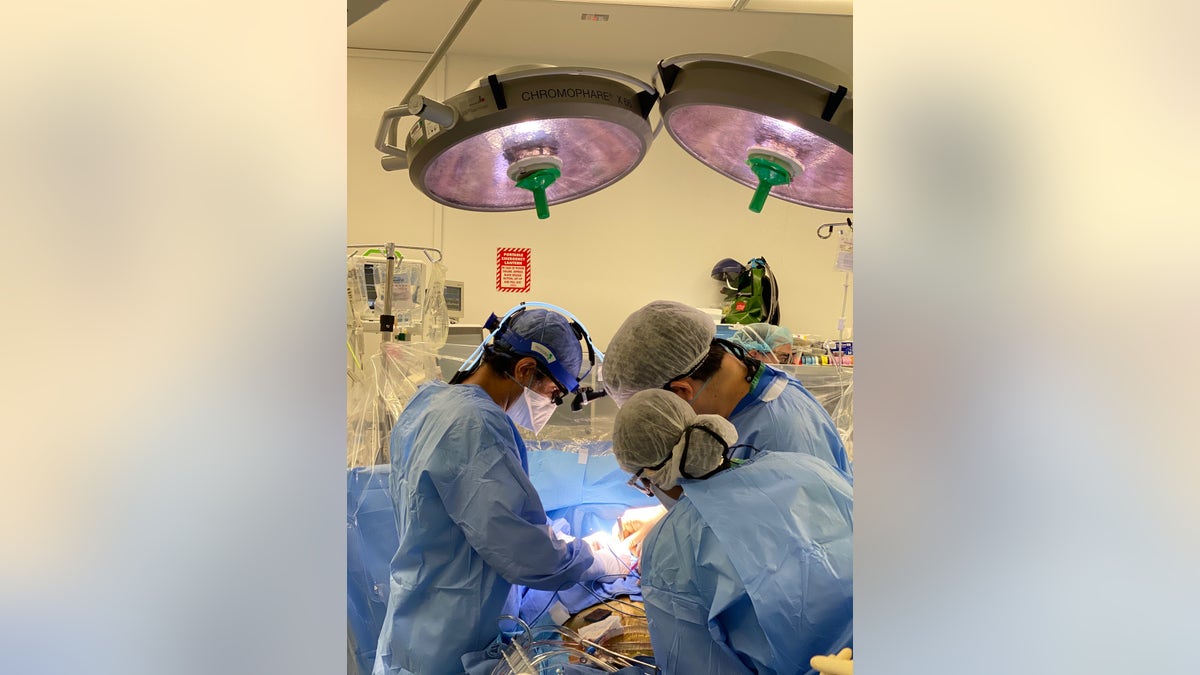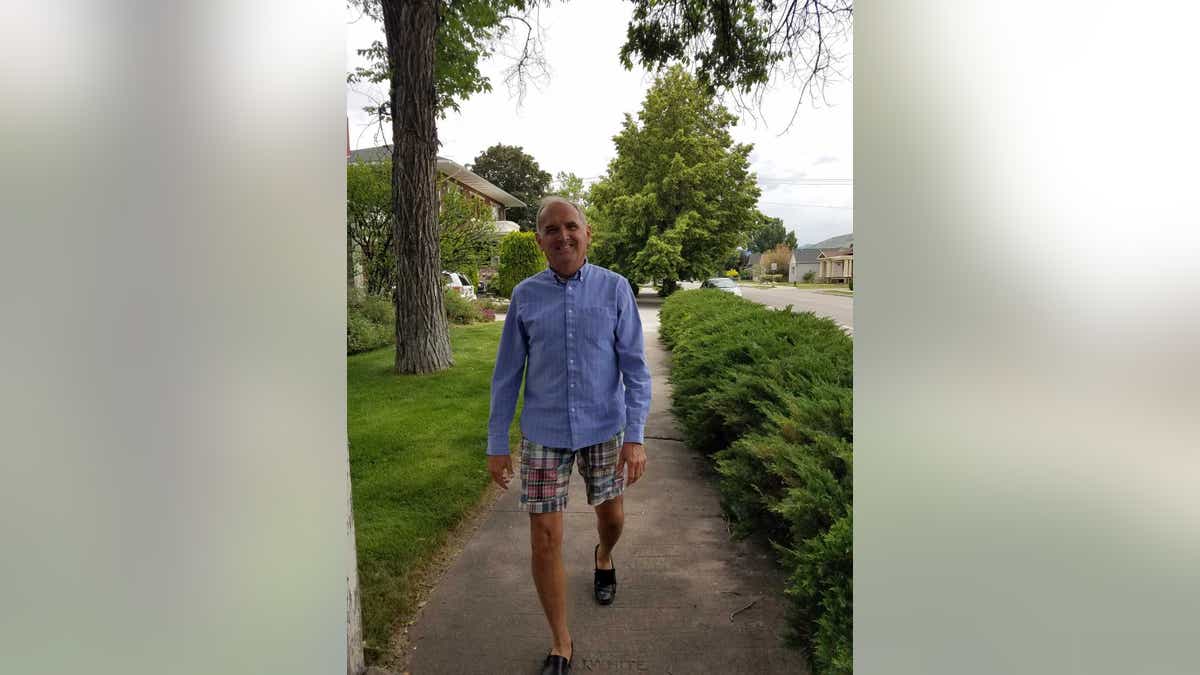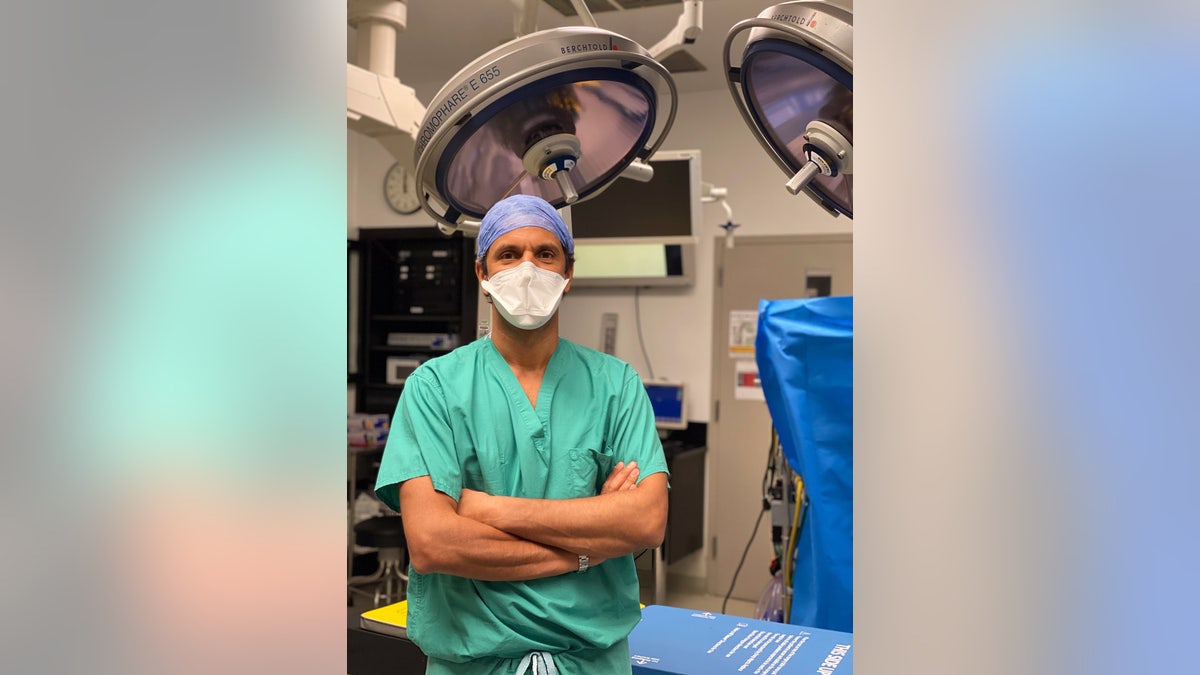Fox News Flash top headlines for July 15
Fox News Flash top headlines are here. Check out what's clicking on Foxnews.com.
Jeffrey Street’s unruptured aortic aneurysm was stretching his aortic valve with severe leakage. A life-saving surgery awaited him in New York City, but that required a cross-country flight amid the coronavirus pandemic.
“When we operated on him we actually saw a little tear in the aorta right where the aneurysm was. ... I mean, you can’t get any closer than this to dying,” Dr. Ismail El-Hamamsy, director of aortic surgery for the Mount Sinai Health System, told Fox News.
Street, 59, was born with a bicuspid aortic valve, or a congenital aortic malformation where the heart has two leaflets, or cusps, instead of three.
MOSQUITOES FOUND WITH WEST NILE VIRUS IN NEW YORK CITY, OFFICIALS SAY

Dr. Ismail El-Hamamsy, director of aortic surgery for the Mount Sinai Health System, conducting surgery. (Photo credit: Mount Sinai Health System)
He had what’s known as a “Ross procedure” 23 years ago, but earlier this year, he felt sluggish and an echocardiogram revealed he was in dire need of a re-do. Street lives in Idaho, and doctors there said the procedure was too complex for them to undertake. Dr. Jacob DeLaRosa, surgeon with Portneuf Medical Group, connected Street with Mount Sinai's specialists in New York.
The staff at Mount Sinai assisted the patient in planning his flights and stay. He ultimately boarded a flight alone, not wanting to risk family members’ health in trying to better his own.
“In his misfortune of needing one heart surgery and then a second heart surgery, he’s very fortunate to have been alive and made it to the hospital despite waiting,” El-Hamamsy said. “He came very close.”
Around five days after the successful procedure, Street was discharged and walking about.
CORONAVIRUS UPDATE: FLORIDA LABS NOT REPORTING NEGATIVE TEST RESULTS, REPORT SAYS

Jeffrey Street recovering well at home in Idaho after heart surgery. (Photo credit: Mount Sinai Health System)
El-Hamamsy said the hospital hasn’t seen coronavirus contamination in more than 150 surgical patients since services resumed.
Strict protocols involve swabbing patients for the virus 48 hours prior to surgery and minimal contact with others thereafter, screening visitors upon hospital entry and extra precautions with feverish hand washing and N95 masks. El-Hamamsy also attributes the success to New York City’s more stabilized virus situation now as compared to the disaster that ravaged the city a few short months ago.

Dr. Ismail El-Hamamsy, director of aortic surgery for the Mount Sinai Health System, conducting an aortic procedure - file photo (Photo credit: Mount Sinai Health System)
On June 9, El-Hamamsy conducted the bentall operation, replacing Steet’s aortic valve and portions of the aorta and ascending aorta. Since it is a congenital condition, several of the patient's family members are also unfortunately affected with the condition.
In an interview with Fox News, Street said that though he was scared, he remained confident and trusted his doctors.
“I feel very fortunate,” he said.
When an aortic valve leaks severely, as in Street’s case, short-term effects involve a lower exercise tolerance, but long-term consequences could mean heart damage and a shorter life expectancy, El-Hamamsy explained.
Street said he feels as though the procedure may have improved over the years, only feeling some discomfort in the morning that wanes after he gets up and moves around. After his first heart procedure in Oklahoma City about two decades ago, Street felt upper body pain in his shoulders and ribs. It took him six weeks to regain comfort in driving.
But fortunately, on Tuesday, Street pulled out his bike, dusted it off, and took an inaugural ride around his town in Idaho.
CLICK HERE TO GET THE FOX NEWS APP
Street is a professor of management at Idaho State University’s College of Business.









































